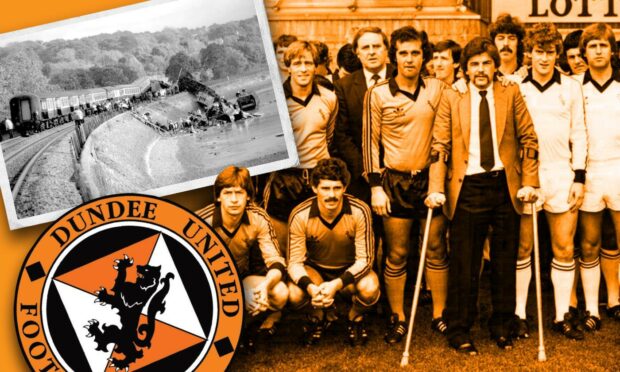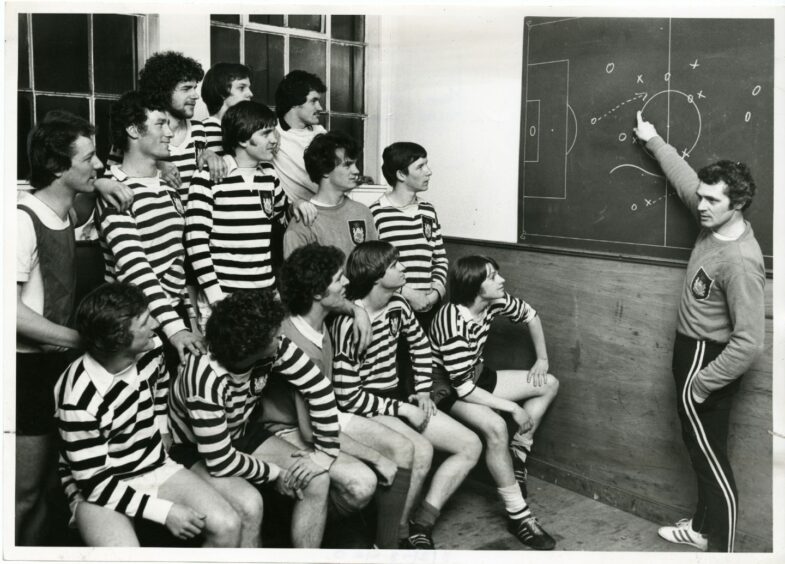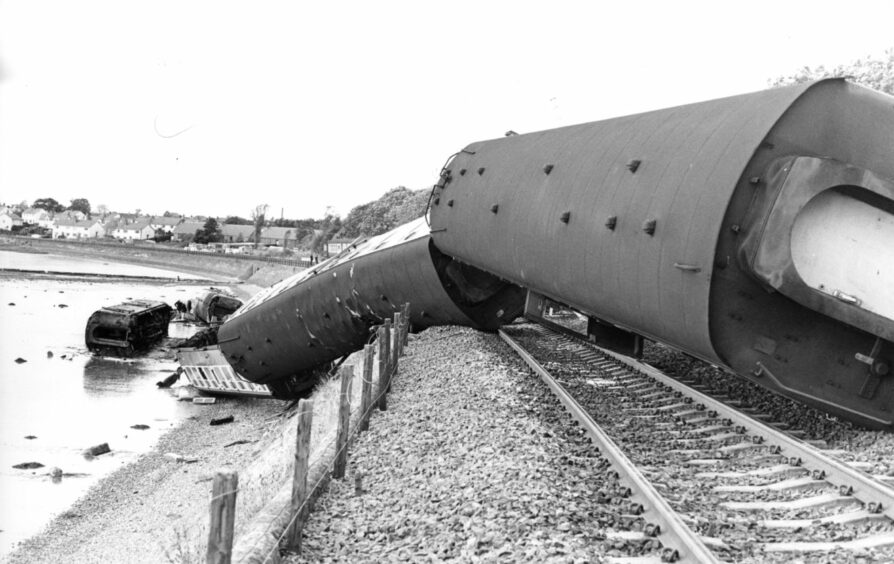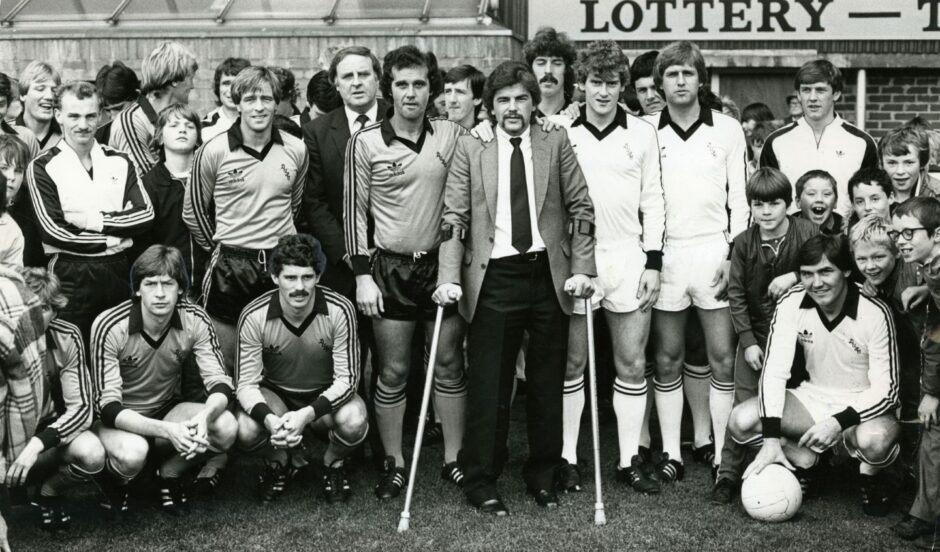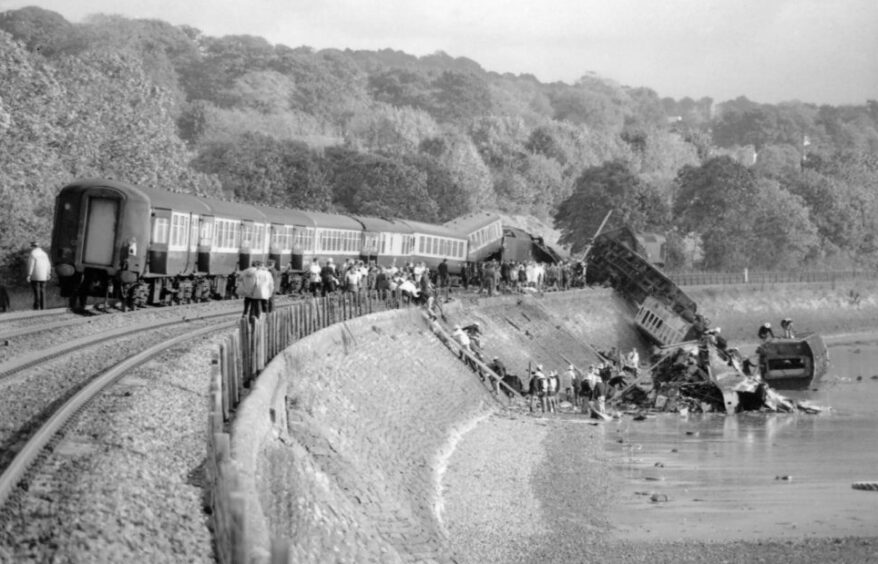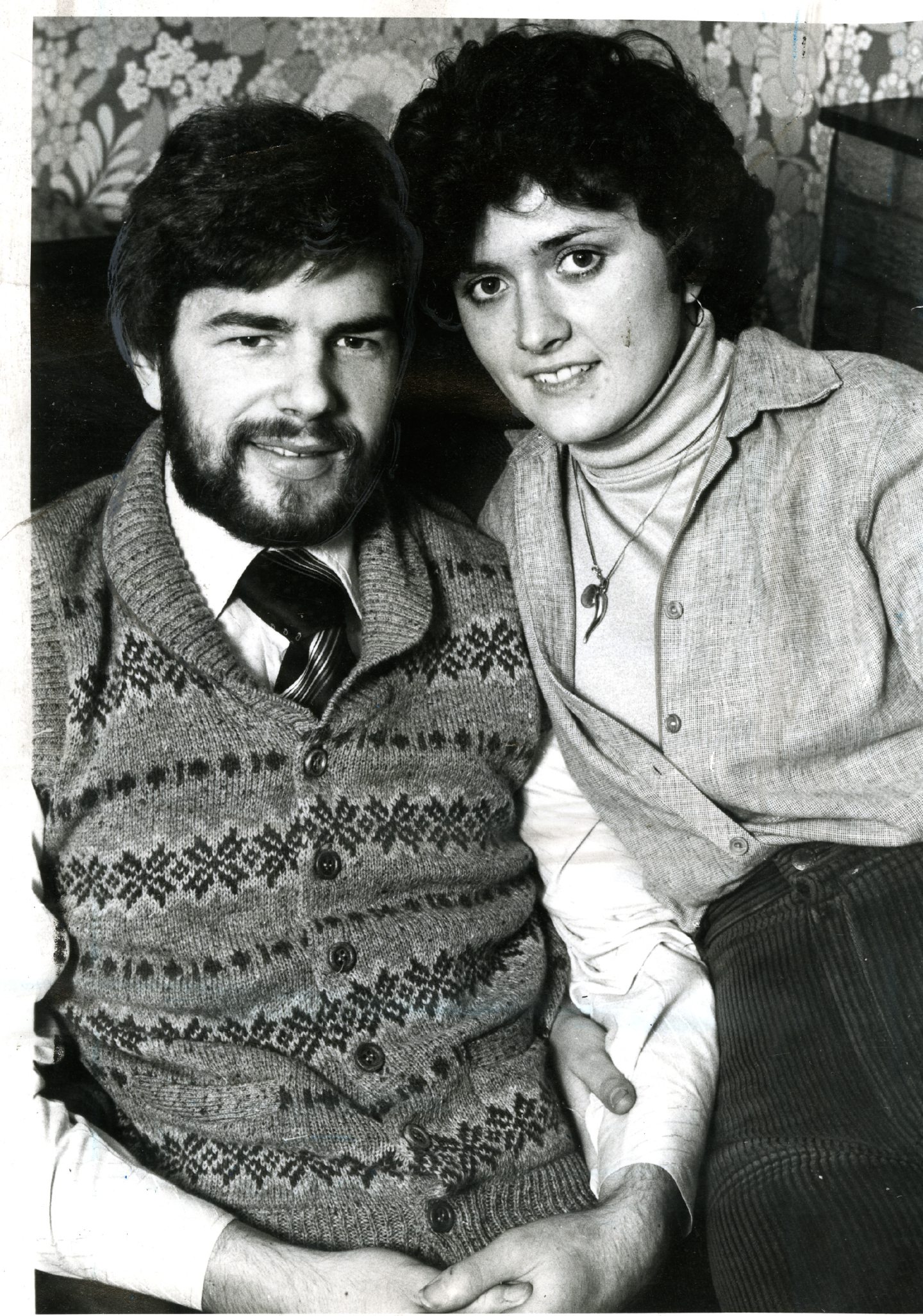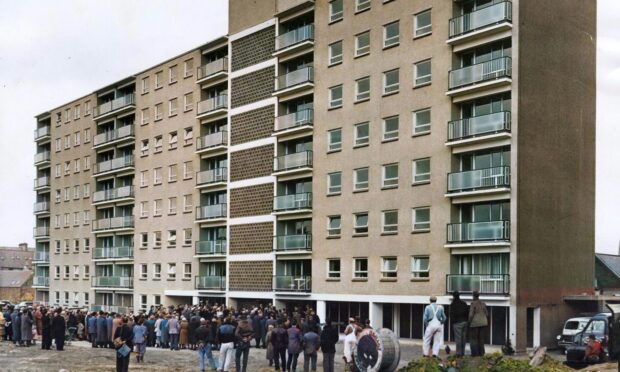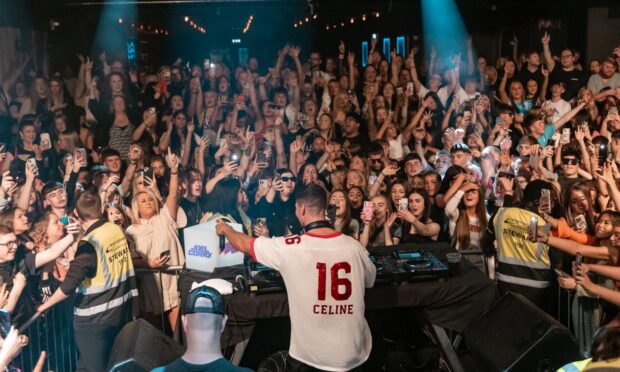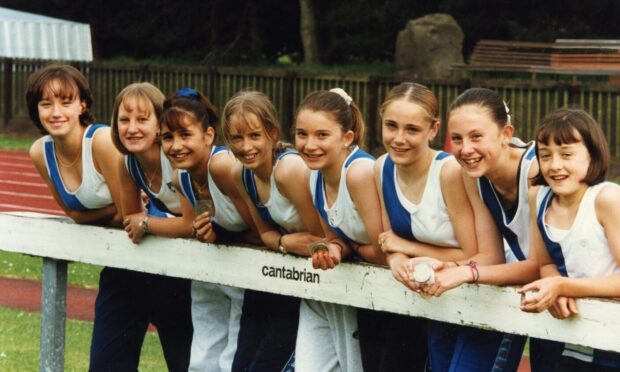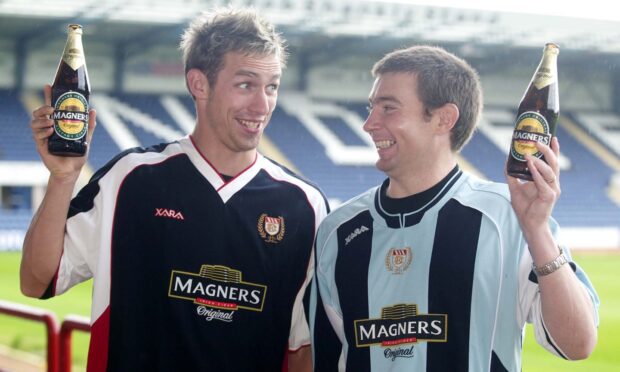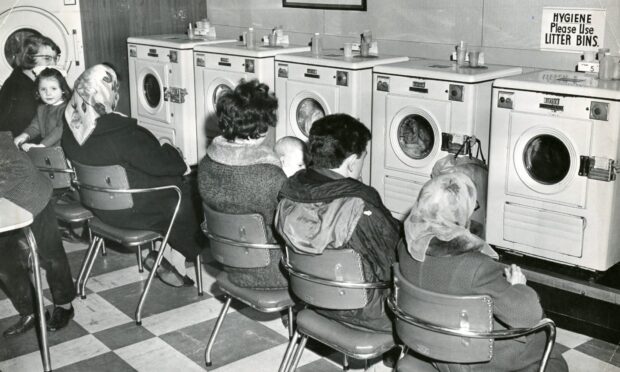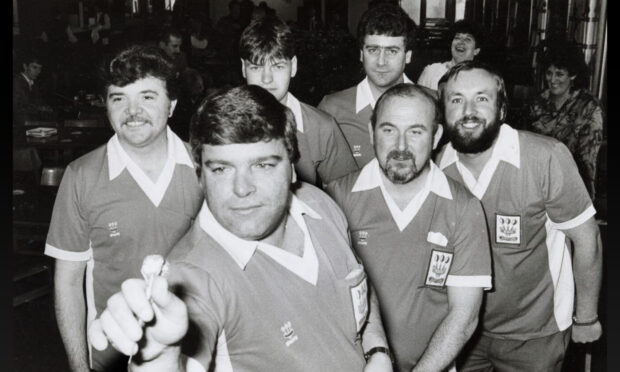The football community rallied round when Dundee United player Doug Wilkie was left wheelchair-bound following the Invergowrie rail tragedy.
Wilkie, 23 at the time of the 1979 crash, was a promising winger who had played more than 100 games in Division Three after making his debut in 1974.
During his five seasons at Hampden, he was voted Player of the Year, and was chosen to play in a Scotland Select side.
He signed for Dundee United earlier in the summer, a club whose manager, Jim McLean, would take the team to unimaginable heights in the 1980s.
What could Wilkie have gone on to achieve had the cards fallen differently?
Wilkie never took to the field in a United jersey because of cartilage trouble in his knee.
He was going to Tannadice on October 22 to try to get the all-clear to play after surgery.
Routine journey became disaster
Wilkie embarked upon what appeared to be a routine rail journey from Stirling to Dundee.
It turned into a disaster and left five people dead and 51 injured.
The locomotive hauling five carriages broke down just after it left Invergowrie and, minutes later, an Aberdeen-bound express slammed into its rear.
The express crew — 52-year-old veteran engine driver and his enthusiastic trainee, a young Fintry man aged just 20 — died despite desperately braking after spotting the stationary train.
Three carriages were hurled more than 30 feet into the mud and two men in the rearmost, one from Birmingham and the other from Poland, were killed instantly.
A fifth casualty, a 73-year-old woman from Perth, died later in hospital from her injuries, after her leg was ripped off.
Had the tide been in, the casualty toll would have been considerably worse, since passengers in the two rear carriages would almost certainly have drowned.
A fatal accident inquiry found the express train driver had misread a faulty signal and that led to the crash, which had a lasting effect on the community.
Wilkie was among the injured that day. He was paralysed from the waist down following the accident and had to give up football.
He was awarded a benefit match on October 4 1981 at Tannadice Park, which included guest players from all of the teams in the Premier Division.
Broken heart
In his programme notes, Wilkie said: “Football has always been part of my life since my school days right to the time I turned professional with Dundee United.
“One of my first teams was Eastercraigs, and team-mates in those early days included Tommy Burns, Alex O’Hara and Joe Sweeney, who also eventually became professional footballers.
“When with Eastercraigs, I had several senior trials with Wolves, Manchester City and Bristol City — and this made me even more determined to make football my career.
“My next team was Fernhill and I played in the same side as Steve Archibald before I moved on to Queen’s Park.
“I had five happy seasons at Hampden.
“During my period with Queen’s, I was voted Player of the Year — an award which meant much and one I was proud to hold.
“I was also chosen to play in a Scotland Select side.
“There is no greater honour than to be chosen for your country — at any level!
“I then fulfilled my lifelong ambition by signing professional forms and went to further my playing career with Dundee United.
“Then came the train crash which left me paralysed from the waist down and shattered my dreams of a football career.
“The day I was told I would never play football again I thought the world had come to an end.
“I was broken-hearted.”
A crowd of 2,000 turned up for the benefit match for Wilkie which featured an East Select versus West Select, the latter winning 4-2.
East: Geddes (Dundee); Nicol (Dundee United), Schaedler (Hibs), MacDonald (Dundee), Kopel (Dundee United), Holt (Dundee United), Callachan (Hibs), Harrow (Aberdeen), Jarvie (Aberdeen), McMaster (Aberdeen), Sinclair (Dundee). Subs: Fleming (Dundee), Payne, Gibson and Gardiner (Dundee United).
West: Thomson (St Mirren); McNamara (Hibs), Dawson (Rangers), Orr (Morton), Copland (St Mirren), O’Hara (Partick Thistle), McAdam (Celtic), Watson (Partick Thistle), Ritchie (Morton), Bone (St Mirren), Higgins (Partick Thistle). Subs: Kirkwood, Reilly and Phillip (Dundee United).
Referee: Dougie Yeats (Perth)
The West side started with four East players in their ranks to replace late call-offs.
St Mirren striker Jimmy Bone opened the scoring for the West on five minutes from 12 yards, after a pass from Andy Ritchie found him in the clear.
Tony Higgins increased the advantage on 21 minutes when he fired a volley past Bobby Geddes from 16 yards, after good build-up play from Bone.
Drew Jarvie reduced the deficit on 35 minutes with a left-foot drive from 18 yards and the supporters were witnessing an entertaining match.
West went further ahead on 75 minutes when a Neil Orr effort was deflected into his own net by Frank Kopel.
Two minutes later John Reilly grabbed a fourth for West from a Bone cross, before Derek Fleming netted a consolation for East with two minutes to go.
The entertaining match was a fitting tribute to Wilkie.
He never forgot that Tay mud and the twisted carriage but turned tragedy to triumph to inspire the next generation of players after retiring.
Wilkie became head coach of Mearns United Boys Club in Glasgow and also played a part in Celtic signing Scotland international James Forrest.
He has also spent decades raising money for spinal research.
More like this:
Jim McLean: A football life in pictures
Victor Ferreyra: Post-Maradona poster boy became a Dundee United cult hero
Steve Archibald followed in Diego Maradona’s boots at Barcelona
